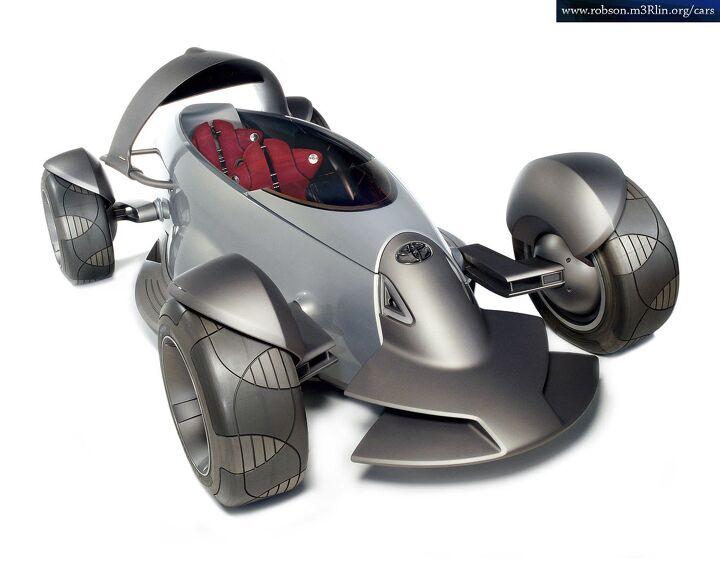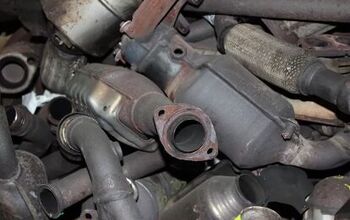Toyota And Daimler To Start Fuel Cell JV? Not Exactly

Toyota definitely keeps us on our toes. Last week, the tete-a-tete between Toyota and Tesla had the world speculating about an electric push by the world’s largest auto maker. That was last week. This week, it’s hydrogen.
Financial Times Deutschland (FTD) has it that Daimler and Toyota are planning a “far ranging cooperation with fuel cell vehicles.” The paper cites no sources, but says that “a joint venture is conceivable.” Today, The Nikkei [sub] has the same story, based on a report on the Kyodo wire, which cites the FTD. Who’s saying that only blogs crib from each other?
To counter the last accusation, we picked up the phone and called Toyota HQ in Tokyo. We had better luck than the FTD which had said that “neither Toyota nor Daimler had any comments.”
Toyota spokesperson Paul Nolasco said to TTAC that “Toyota has regular exchanges with Daimler and other companies about this technology.” As far as the rumored joint venture goes, “nothing has been decided.” In any case, it’s old news. “We had already talked before,” Nolasco said in a reference to a joint declaration of GM, Toyota, Honda, and Daimler of last September. The companies jointly said that “durability improvements and cost reductions may enable them to sell the zero-emission vehicles by 2015,” Bloomberg had reported, noting that “their plans clash with the U.S. government’s infrastructure priorities.” Which are in favor of electrification.
Development of hydrogen powered vehicles literally has been going on for ages. For more than 200 years, to be exact. An engine, running on an explosive mix of hydrogen and oxygen, was developed in 1806 by a Swiss inventor, and a car powered by said power train was rolling a year later, in 1807. It predated the gasoline engine by more than 60 years. In the 1990s, research into fuel cells intensified, and there is a long list of mostly experimental fuel cell vehicles by most larger car makers.
Hydrogen is not without problems. During its production, fossil fuels are often used, and CO2 is created. Then, there is the nastiness of a hydrogen infrastructure. California already has some 20 hydrogen filling stations for a few hundred experimental hydrogen cars – but if you venture away from Los Angeles, where most stations are clustered, you literally run out of gas.
As far as the plans for alternative energy vehicles go: Relax. Just like any other large auto maker, Toyota and Daimler are keeping their options open. A little research here and there doesn’t hurt. If there is green cred to be harvested along the way, even better. But don’t bet on the imminent death of the ICE.

Bertel Schmitt comes back to journalism after taking a 35 year break in advertising and marketing. He ran and owned advertising agencies in Duesseldorf, Germany, and New York City. Volkswagen A.G. was Bertel's most important corporate account. Schmitt's advertising and marketing career touched many corners of the industry with a special focus on automotive products and services. Since 2004, he lives in Japan and China with his wife <a href="http://www.tomokoandbertel.com"> Tomoko </a>. Bertel Schmitt is a founding board member of the <a href="http://www.offshoresuperseries.com"> Offshore Super Series </a>, an American offshore powerboat racing organization. He is co-owner of the racing team Typhoon.
More by Bertel Schmitt
Latest Car Reviews
Read moreLatest Product Reviews
Read moreRecent Comments
- 3-On-The-Tree Besides for the sake of emissions I don’t understand why the OEM’s went with small displacement twin turbo engines in heavy trucks. Like you guys stated above there really isn’t a MPG advantage. Plus that engine is under stress pulling that truck around then you hit it with turbos, more rpm’s , air, fuel, heat. My F-150 Ecoboost 3.5 went through one turbo replacement and the other was leaking. l’ll stick with my 2021 V8 Tundra.
- Syke What I'll never understand about economics reporting: $1.1 billion net income is a mark of failure? Anyone with half a brain recognizes that Tesla is slowly settling in to becoming just another EV manufacturer, now that the legacy manufacturers have gained a sense of reality and quit tripping over their own feet in converting their product lines. Who is stupid enough to believe that Tesla is going to remain 90% of the EV market for the next ten years?Or is it just cheap headlines to highlight another Tesla "problem"?
- Rna65689660 I had an AMG G-Wagon roar past me at night doing 90 - 100. What a glorious sound. This won’t get the same vibe.
- Marc Muskrat only said what he needed to say to make the stock pop. These aren't the droids you're looking for. Move along.
- SCE to AUX I never believed they cancelled it. That idea was promoted by people who concluded that the stupid robotaxi idea was a replacement for the cheaper car; Tesla never said that.



































Comments
Join the conversation